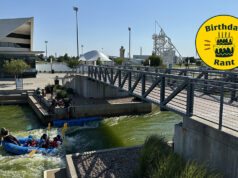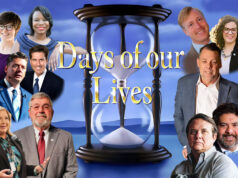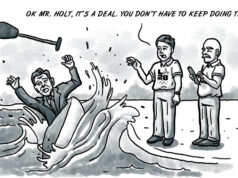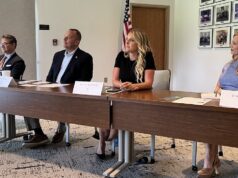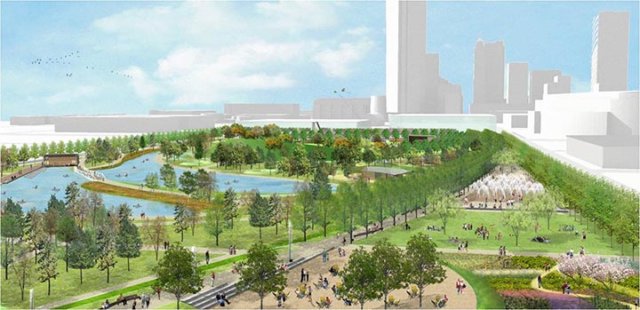
When it comes to how to spend money from a proposed MAPS 4, Oklahoma City residents want fewer big ticket infrastructure projects and more things that benefit them directly.
Those are the findings of a recent SoonerPoll survey of 406 likely OKC voters conducted between April 24 and May 9.
Only about 14 percent of respondents want the entirety of the MAPS penny sales tax to be dedicated for capital projects like a new soccer stadium or expansion of downtown Oklahoma City’s streetcar project.
Instead, proposals like improving the city’s bus shelters, bike lanes and expansion of facilities for city residents with mental health and substance abuse problems are more broadly favored by respondents.
Nearly 70 percent of respondents said they would support a 1/8-cent sales tax for city park operations with the addition of better restrooms and more activities for children and adults including athletic facilities.
About 48 percent of respondents want at least half the money spent on operations and maintenance of previous capital projects like Scissortail Park and downtown Oklahoma City’s streetcar system.
Another 22 percent want at least one quarter of the money spent on operations and maintenance.
In the past, MAPS monies have not been used on maintenance and operations, something that could create problems for the city’s parks and recreation department tasked with maintaining the park when it opens.
“I think it shows Oklahoma City voters are tired of big capital projects and are more interested in people projects,” SoonerPoll CEO Bill Shapard said.
Former OKC City Councilman Ed Shadid commissioned the poll.
“While the public is clearly in the mood to provide improvements in parks, transit, mental health, homelessness and biking infrastructure, they also overwhelmingly seem to realize that it is financially irresponsible to build things without having a funding source to provide for the operations and maintenance of those investments,” Shadid said in a statement.
Public transit popular
Public transit scored well when respondents were informed Oklahoma City is the largest city in America without public bus transportation on Sundays and evenings. Sixty-four percent of respondents would like to see MAPS 4 money used to improve that situation.
Shapard said some of the unpopularity of proposed capital projects might be influenced by other problems within the county, like its jail, which is a constant source of controversy.
A proposed soccer stadium and replacement of Ron Norick Arena at the Oklahoma State Fairgrounds were among the most unpopular MAPS 4 items with those polled.
“I think it’s a combination of fatigue and people looking at the situation with the county jail that nobody seems to want to deal with,” Shapard said. “The Republicans don’t want to put forth a tax increase, and the Democrats want to kick the can. Neither side seems to want to fix the problems.”
The high profile death of Oklahoma City chef Chad Epley — killed while riding his bicycle in March — might have impacted the numbers on bicycle paths, Shapard said.
“I’m not sure it explains it all, but I have to think that it might have had something to do with those results and how people are thinking about that issue,” Shapard said.
The city has been asking for input from residents on MAPS 4, but those results have not been made public.
“This is 100 percent disclosed,” Shapard said of the poll commissioned by Shadid. “This poll has the highest level of transparency of any poll conducted on MAPS projects, including those conducted by the chamber of commerce.”
Since last year, the city has been taking suggestions from residents about what should be on the next MAPS 4 vote. That vote is likely to take place in December. Mayor David Holt, the OKC City Council and other civic leaders will determine what suggestions ultimately end up in the next MAPS package.
Read the full poll results
